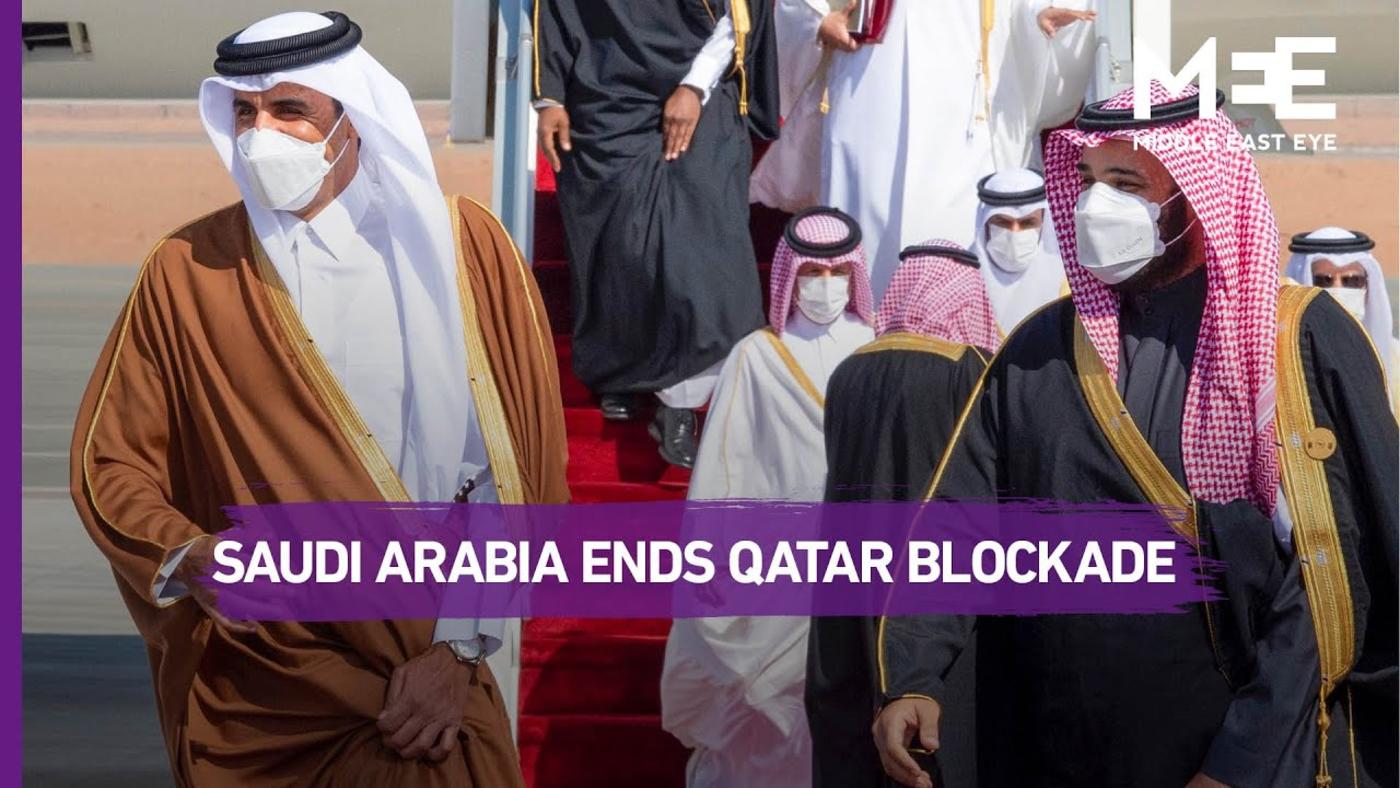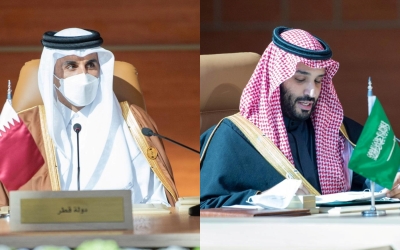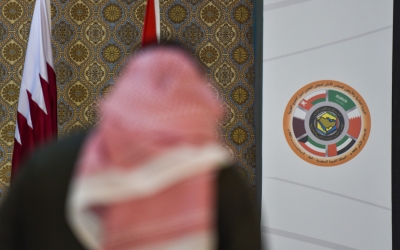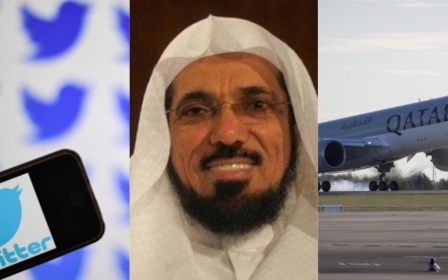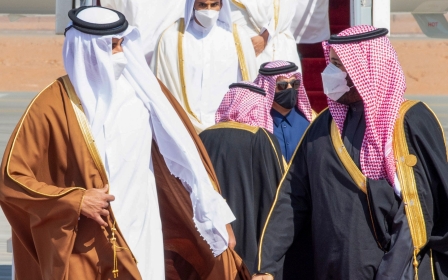Saudi Arabia and allies restore full diplomatic relations with Qatar
Saudi Arabia and its three Arab allies agreed to restore full ties with Qatar on Tuesday, ending a three-and-a-half year-long blockade against the gas and oil-rich nation.
Saudi Foreign Minister Faisal bin Farhan al-Saud told reporters at a regional gathering of Gulf Arab states, that there was political will and good faith to restore diplomatic and other ties, including the resumption of flights.
"What happened today is... the turning of the page on all points of difference and a full return of diplomatic relations," Bin Farhan told the press conference at the conclusion of the six-member Gulf Cooperation Council (GCC) summit - which was also attended by Egypt.
Earlier on Tuesday, leaders of the GCC signed two documents, the Al-Ula declaration, named after the Saudi city where this year's regional summit was held, and a final communique.
While the final declaration only contained a general pledge of solidarity, the apparent breakthrough signals hope for mending a rift between major US allies just two weeks before President-elect Joe Biden takes office.
Saudi Arabia led its allies, the United Arab Emirates, Bahrain and Egypt, to cut ties with Qatar in June 2017, saying it was too close to Iran and funding radical movements, charges Doha staunchly denies.
The four nations subsequently expelled Qataris residing in their countries and issued a list of 13 demands, including shuttering the Al Jazeera news network, ending Turkish military presence in Qatar and cutting diplomatic ties with Iran - all of which were turned down by Doha.
Hopes for a deal to end the impasse were raised overnight when Saudi Arabia announced it had opened its borders with Qatar.
Upon his arrival in Saudi Arabia on Tuesday, Qatari Emir Sheikh Hamid bin al-Thani was warmly embraced by Saudi Crown Prince Mohammed bin Salman, also known as MBS.
MBS thanked the United States and Kuwait for mediating the agreement and said the resumption of ties would affirm "Gulf, Arab and Islamic solidarity and stability".
He also called for serious action by the global community to address a threat he said was posed by Iran's nuclear and ballistic missile programmes and its "subversive and destructive plans".
Trust-building measures
While Tuesday's announcements mark a major milestone towards resolving the Gulf crisis, the rift between Abu Dhabi and Doha has been the deepest, with the UAE and Qatar at sharp ideological odds.
Anwar Gargash, the UAE's minister of state for foreign affairs, voiced optimism over the agreement but said trust-building measures were still needed.
"We need to be realistic about the need to restore confidence and restore cohesion," Gargash told Al Arabiya television. He later told CNN that the agreement led to "general outlines that basically govern relations between states that are party to the same organisation," referring to the GCC.
Kristian Coates Ulrichsen, a Middle East fellow at Rice University's Baker Institute for Public Policy, said repairing the social damage and animosity that the rift caused would be the "hardest challenge of all".
"The 2017 crisis impacted way beyond the circle of elite decision-makers and hit peoples and communities who had to put up with three and a half years of family separations, insults and constant finger-pointing and name-calling," Ulrichsen told MEE.
"These memories may take a long time to heal in some cases."
Diplomats and analysts say Saudi Arabia was pushing for a deal, hoping it would show Biden - who will be taking office later this month - that Riyadh is open to dialogue.
On the campaign trail, Biden said he would reassess the US's relationship with Saudi Arabia and would take a harder line with the kingdom over issues including its human rights record and the Yemen war.
MBS has also faced fierce criticism over his links to the murder of The Washington Post and Middle East Eye columnist Jamal Khashoggi, and the imprisonment of moderate clerics such as Salman al-Odah.
Odah was detained the day after the start of the blockade for tweeting a prayer calling for reconciliation between Saudi Arabia and Qatar. The 64-year-old stands accused in a terrorism court of being a member of the outlawed Muslim Brotherhood.
"Any reconciliation is a good sign, but it should serve the general interests of the Saudi and Qatari people, not just the narrow political interests of its undemocratic leaders," the cleric's son, Abdullah, told the Times newspaper.
"Today's agreement may help undo the diplomatic impasse, but unfortunately does nothing to address harms that accompanied it, including the unjust detention and persecution of my father and others."
Middle East Eye delivers independent and unrivalled coverage and analysis of the Middle East, North Africa and beyond. To learn more about republishing this content and the associated fees, please fill out this form. More about MEE can be found here.


